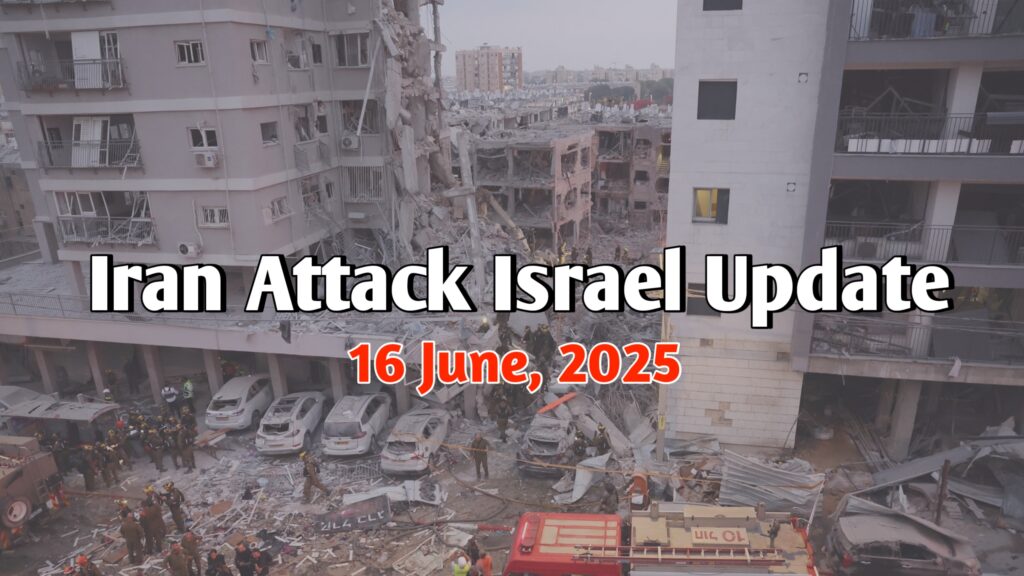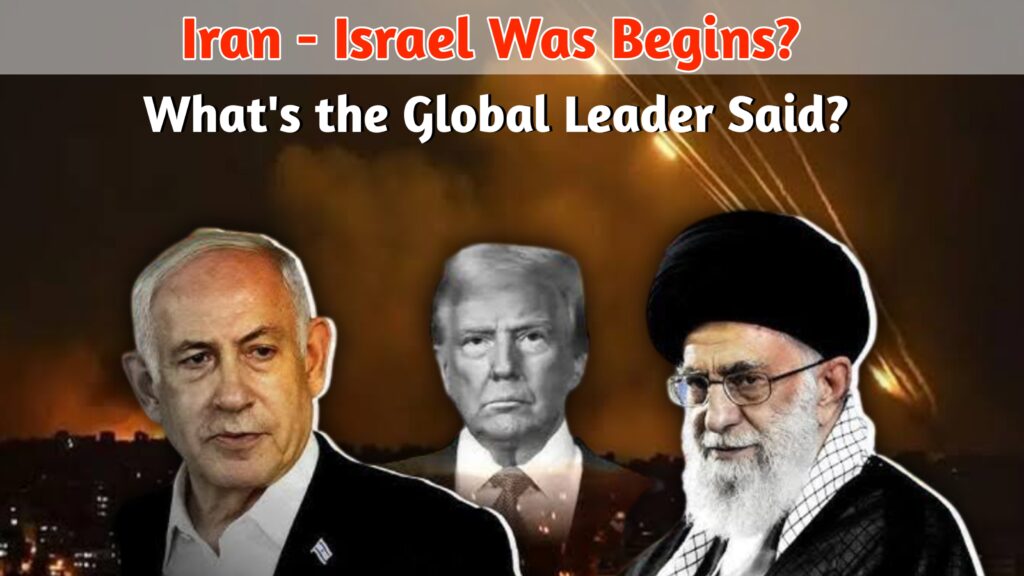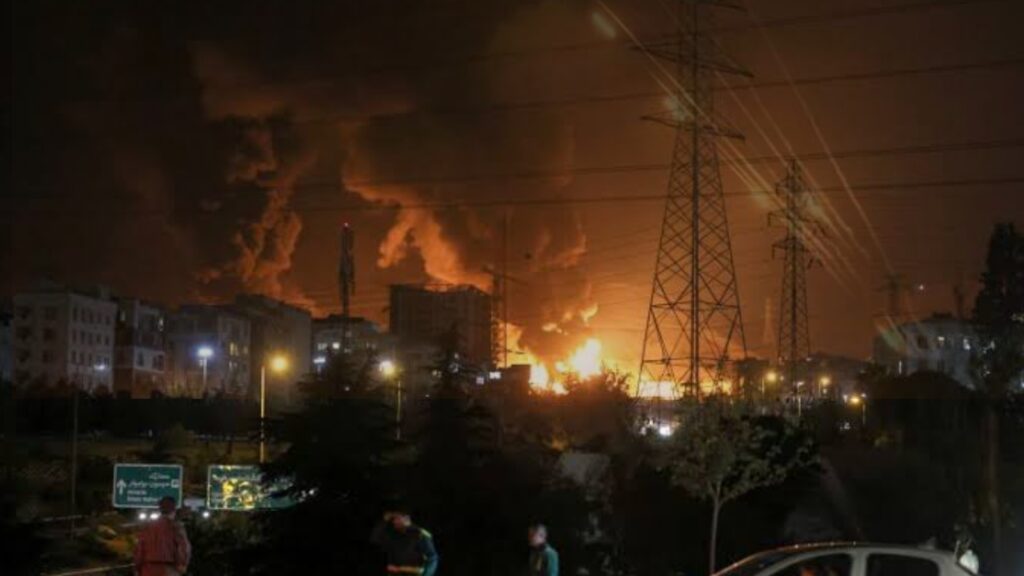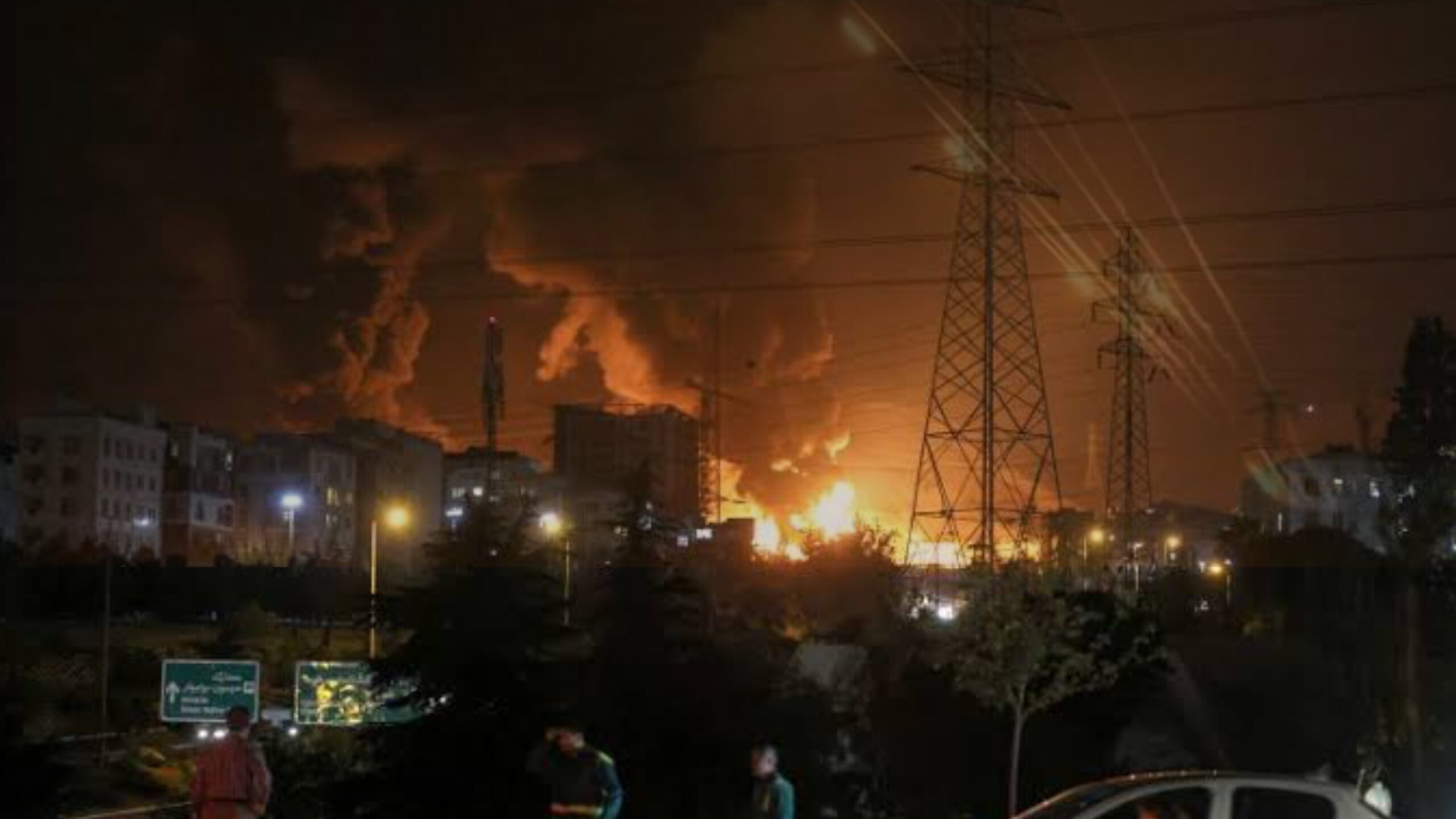Iran Launches Missile Attack on Isreal in the early hours of Monday, Israel faced one of its most serious security breaches in recent years as Iran launched dozen of missiles trageting its major cities. Tel Aviv and Hafia were among the hardest-hit areas. The isreali authorities confirmed that at least five people have died, with oven 40 other wounded in the sudden strike.

This attack has dramatically escaled tensions in the Middle East, raising global concerns about the risk of a full-scale war.
Table of Contents
Why Iran Launches Missile Attack on Isreal? What Triggered the Attack?
The background to this assualt can be traced to a series of high-stakes incidents over recent months:
- April 2025: Iran’s Natanz nuclear facility suffered damage from a suspected cyberattack. Tehran blamed Israel.
- May 2025: Israeli airstikes in Syria reportedly trageted Iranian Israel.
- June 10, 2025: A senoir Iranian commander was killed in Damascus in an alleged Israeli drone strike.
Following these events, Iran’s Supreme Leader Ayatollah Ali Khamenei vowed a “strong and direct retaliation.” That retaliation came in the form of missile barrages that lit up the skies over Israeli territory this morning.
Israel’s Immediate Respose
Within minutes of the first missiles landing. the Israeli military-IDF-activated its iron, Dome defense system. While many incoming threats were neutralized mid-air, a number of missiles still caused significant damage to residential and commercial areas.
Israeli fighter jets retaliated by targeting suspected IRGC positions in Syria and along the Lebanon border. According to IDF spokespersons, Israel is “prepared for all possibilities,” hinting that a broader military campaign may be in the works.
Global Leaders React
The international community has responded urgently to the situation:

- The United Nations called for an emergency meeting to de-escalate the crisis.
- U.S. President Joe Biden expressed solidarity with Israel and condemned the attacks, stating, “Iran must be held accountable.”
- The European Union urged both sides to exercise restraint, offering diplomatic mediation to avoid further bloodshed.
- China and Russia, while calling for peace, emphasized the need for regional stability and expressed concern over potential Western involvement.
This division in global response reflects deeper geopolitical alignments and complicates peace efforts.
Civilians Trapped in Fear
While politicians speak of retaliation or diplomacy, ordinary citizens are bearing the true cost. In Tel Aviv, children were rushed out of schools and hospitals were overwhelmed with the injured. In Haifa, emergency shelters are full, with families waiting out further attacks.
Iranian media, on the other hand, is reporting that Israeli counterattacks have killed more than a dozen people, many of them Iranian military personnel based in Syria.
For millions of people across both nations and neighboring territories, the fear of an escalating war is now a grim reality.
The Bigger Picture: What’s at Stake?
This isn’t just another skirmish. The Iran-Israel conflict, long fought through covert operations and regional militias, is now unfolding openly. The stakes are enormous:
- Geopolitical Influence: Iran aims to assert dominance in the Middle East, while Israel seeks to maintain military superiority and deter nuclear threats.
- Nuclear Fears: With both countries possessing nuclear capabilities or ambitions, international observers worry about the risk of weapons-grade materials becoming targets.
- Regional Involvement: Hezbollah in Lebanon has already fired rockets in support of Iran. Syria, Iraq, and even Saudi Arabia could be drawn into the crisis.

Is War Inevitable?
Israel has so far stopped short of declaring a state of war, but its military activity suggests otherwise. Prime Minister Benjamin Netanyahu stated:
“Israel will not tolerate aggression. We will respond with strength and unity.”
Iran, for its part, warned that any further attacks would be met with even “more powerful consequences.” Their Revolutionary Guard has raised its alert status to the highest level.
Analysts believe that if diplomatic channels fail in the next few days, the situation could spiral into a broader regional conflict—possibly one involving direct participation from major world powers.
What Comes Next?
As of now, the following scenarios are possible:
- Diplomatic De-escalation: UN-led or EU-brokered talks might create temporary peace.
- Expanded Proxy War: Militias in Lebanon, Iraq, and Gaza may intensify attacks on Israel, leading to a prolonged conflict without formal declarations.
- Open War: A worst-case outcome where both nations fully mobilize their armed forces and engage in direct war, potentially drawing in allies.
The coming 48 hours are critical. Global leaders and citizens alike are watching with anxiety.
Conclusion
Iran’s missile attack on Israel marks a turning point in the region’s volatile history. What was once a shadow conflict fought through cyberwarfare and proxy militias has erupted into a dangerous and very public confrontation. Unless immediate action is taken by world leaders to halt further violence, the Middle East—and the world—may soon face consequences no one is prepared for.
